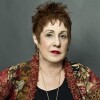Originally published under the title, “145 Authors Protest ‘Freedom of Expression’ Award to Charlie Hebdo as Islamophobic.”
The PEN award to the survivors of the Charlie Hebdo massacre has drawn some very distinguished fire. On April 26, 2015, six PEN “table hosts,” all highly regarded writers, publicly protested PEN’s decision to give an award for “Freedom of Expression Courage” to these courageous survivors. This award, to be given on May 3rd, is separate from the literary prizes.
By April 30th, the six (Peter Carey, Teju Cole, Rachel Kushner, Michael Ondaatje, Francine Prose, and Taiye Selasi) were joined by one hundred and thirty nine authors who signed a petition of protest. In all, this represents only 4% of their membership.
Salman Rushdie, a writer who knows what it is to pay the price for having criticized Islam and is also a former President of PEN had this to say: They are “six authors in search of character.” He is right. They do not know how to stand up to the false charge of “Islamophobia.”
Thus, one hundred and forty five authors have decided to shame PEN—publicly, and at the last minute—in order to make an “anti-Islamophobic” political statement which renders every critic of Islamic gender and religious apartheid, and every critic of Islamic terrorism, that much more vulnerable.
One of the six protesting table hosts, novelist Francine Prose, has written in The Guardian:
The ‘narrative’ of the Charlie Hebdo murders—white Europeans killed in their offices by Muslim extremists—is one that feeds neatly into the cultural prejudices that have allowed our government to make so many disastrous mistakes in the Middle East. The First Amendment guarantees the right of the Neo-Nazis to march in Skokie, Illinois but we don’t give them an award.
Those who may be greatly talented are not spared the most vulgar prejudices of the day.
PEN is one of the two major American groups that represent authors; The Author’s Guild is the other group. PEN is funded by many including Amazon.com; The Ford Foundation; Hachette Book Groups; The Mellon Foundation; The Kaplen Foundation; The Lannan Foundation; the National Endowment for the Arts; and Soros’s Open Society Institute. This documents that PEN is a mainstream powerhouse, and what they do matters.
PEN is especially committed to freedom of speech globally and gives out awards yearly to prisoners of conscience, those behind bars, and those in foreign lands who are being censored or jailed for their writings.
Some of these distinguished signatories include the biographer of a Jewish-American woman who converted to Islam and who became the leading propagandist in Pakistan for radical Islam; a writer who believes that Israel’s Gay Pride marches and other gay-friendly policies are only “pinkwashing;" a writer who believes that America’s policies abroad are wrong, all and always wrong; a writer who is obsessively pro-Palestinian.
This shows how far left our leading literary lights have become; it also shows the extent to which so many leftists receive major literary prizes (The Man Booker Prize, etc.).
Those who may be greatly talented are not spared the most vulgar prejudices of the day. Their foolish protest is a betrayal of the very civilization that has allowed them to flourish.
Phyllis Chesler, an emerita professor of psychology and women’s studies and the author of sixteen books, is a Shillman-Ginsburg fellow at the Middle East Forum.








